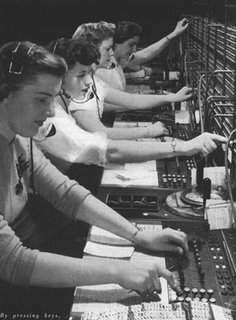
I remember the first ATM machines installed outside of banks and savings & loans. Banks gave incentives for customers to use the ATMs rather than go inside to get teller assistance. The banks knew the increased efficiency that came from letting machines do what machines do best and letting humans take care of the exceptions.

I was reminded of this change in our society when, just this week, I used ATMs or similar machines to deposit checks, withdraw cash, and pay for parking. I used the Internet to check on flight status, reserve a rental car, check my library account to see if any books were overdue, renew several library books, place a library book on hold, check my bank balance and transfer funds between accounts, pay several bills, and most recently make a reservation at a local restaurant. In each case I could have continued to use the phone or a face to face transaction (except maybe the bill paying) but I chose the automated method because of ease of use and trust that the transaction would be handled correctly. In fact, I’d like to think that our increasing dependence on machine-handled transactions is a tribute to excellent machine design rather than poor human performance in those transactions. But it does point out the importance of providing excellent human performance in those areas where it still can happen.
No comments:
Post a Comment